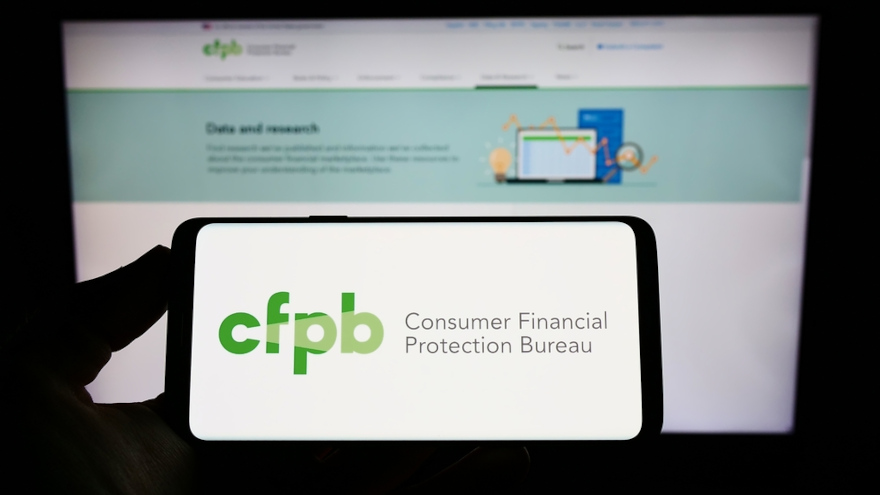CFPB roundup: Proposed settlement with credit repair firm totals $2.7B

Image by T. Schneider / Shutterstock.com
By subscribing, you agree to receive communications from Auto Remarketing and our partners in accordance with our Privacy Policy. We may share your information with select partners and sponsors who may contact you about their products and services. You may unsubscribe at any time.
Among a series of activities in recent days, the Consumer Financial Protection Bureau entered a proposed settlement on Monday with what the regulator called “a ring of corporate entities” operating some of the largest credit repair brands in the country, including Lexington Law and CreditRepair.com.
Officials said the agreement follows a ruling from a district court that the companies collected illegal advance fees for credit repair services through telemarketing in violation of federal law.
If approved, the CFPB said settlement would impose a $2.7 billion judgment against the companies. The bureau said the order will also ban the companies from telemarketing credit repair services for 10 years.
The CFPB previously sued the companies to halt what the regulator deemed to be their illegal conduct and seek redress and other relief.
In March, officials recapped, a district court ruled that the defendants violated the advance fee provision of the Telemarketing Sales Rule, which provides a range of protections for consumers related to telemarketing and sets payment restrictions for certain goods and services.
The rule also requires credit repair companies to wait until six months after they provide the consumer with documentation reflecting that the promised results were achieved, before they request or receive payment from the consumer.
Subscribe to Auto Remarketing to stay informed and stay ahead.
By subscribing, you agree to receive communications from Auto Remarketing and our partners in accordance with our Privacy Policy. We may share your information with select partners and sponsors who may contact you about their products and services. You may unsubscribe at any time.
Following the district court’s ruling, the CFPB said the companies filed for Chapter 11 bankruptcy protection. According to the regulator, the companies said that they had shut down about 80% of its business, including its call centers, and laid off about 900 employees in response to the court’s ruling.
Lexington Law and CreditRepair.com are two the largest credit repair brands in the country. The credit repair services are marketed and offered through a network of related entities in the Salt Lake City area, including PGX Holdings, Progrexion Marketing, and the John C. Heath, Attorney-at-Law PC law firm.
During the time period relevant to the lawsuit, the CFPB said the companies operated nationwide and had more than 4 million customers who were subjected to telemarketing.
In 2022, the defendants had combined annual revenues of approximately $388 million, according to officials.
Due to the companies’ financial insolvency, the CFPB will determine whether the CFPB’s victims relief fund can be used to make payments to those harmed by the defendants.
“Americans across the country looking to improve their credit scores have turned to companies like CreditRepair.com and Lexington Law. These credit repair giants used fake real estate and rent-to-own opportunities to illegally bait people and pad their pockets with billions in fees,” CFPB director Rohit Chopra said in a news release. “This scam is another sign that we must do more to fix the credit reporting and scoring system in our country.”
Agencies to host roundtable on special purpose credit programs
The CFPB is among four federal agencies that will host a roundtable discussion on Sept. 12 regarding the availability of special purpose credit programs to help meet the credit needs of eligible individuals.
Along with Chopra, other federal officials scheduled to offer remarks at the event include:
—U.S. Department of Housing and Urban Development Secretary Marcia Fudge
—Acting Comptroller of the Currency Michael Hsu
—Federal Housing Finance Agency Director Sandra Thompson
The agencies said the event will also include a roundtable discussion with representatives from community groups and industry trade organizations that are focused on the opportunities and benefits of special purpose credit programs.
Officials explained that special purpose credit programs are a long-established tool permitted under the Equal Credit Opportunity Act (ECOA) and Regulation B. Special purpose credit programs can help creditors expand responsible credit access to economically or socially disadvantaged consumers and commercial enterprises.
“With proper planning, development, and implementation, lenders can use special purpose credit programs as permitted under ECOA and Regulation B to help address the critical credit needs of underserved communities,” officials said.
CFPB sues installment lending conglomerate
Last week, the CFPB announced it is suing Heights Finance Holding Co., formerly known as Southern Management Corp., an installment lender, as well as several of Heights’s subsidiaries for what the bureau called “illegal loan-churning practices that harvested hundreds of millions in loan costs and fees.”
The CFPB alleged that the company — which operates under a variety of trade names, including Covington Credit, Southern Finance, and Quick Credit — identifies borrowers who are struggling to repay their existing loans and then “aggressively” pushes them to refinance.
The CFPB is seeking to end Southern’s “unlawful loan-churning practices” to gain redress for harmed consumers and to require Southern to pay a civil money penalty.
The bureau indicated Southern is a nonbank installment lender with its principal place of business in Greenville, S.C. It is a wholly owned subsidiary of CURO Group Holdings Corp. and operates more than 250 brick-and-mortar storefronts in the states of Texas, Oklahoma, Alabama, Georgia, Tennessee and South Carolina.
The CFPB said Southern’s borrowers typically have low or fixed incomes and impaired credit. The company’s typical borrower earns less than $25,000 annually. Many of its borrowers are either older Americans living on fixed incomes or are single-parent wage earners.
“The CFPB is suing the Southern lending conglomerate for illegally churning loans and harvesting fees from their customers,” Chopra said in another news release. “What Southern sold as a financial lifeline was, in reality, pushing customers into financial quicksand.”


